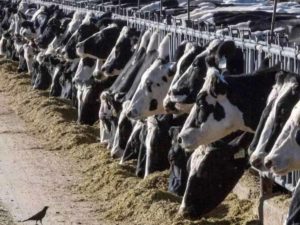So much so, most consumers have been trading down their grocery purchases to smaller packs, cheaper brands and regional brands.
Looks like the long arm of GST is catching up on this trend too. In its 47th meeting held last week, the GST council imposed 5% tax on dairy items like ‘pre-packed, pre-labelled curd, lassi, paneer, and buttermilk’ and increased GST on dairy machinery from 12% to 18%.
It also withdrew the exemptions given to pre-packaged and pre-labelled meat/fish (except fresh and frozen). Such food items will now be taxed at 5%, at par with branded items. This move is seen as a way to level the playing field due to changing market dynamics.
“It was reported that a lot of the labelled category players were deregistering from GST, claiming to be unlabelled, and causing an imbalance as the original unlabelled private players found the playing feel lopsided with these other entrants,” Alankrita Goswami, an agricultural economist told Business Insider India.
It will also affect the dairy product-loving Indians, who have been looking for ways for slightly cheaper products as shrinkinflation and sticker shocks have been steering away from branded foods.
Costly fodder adds to the price of milk production
India’s prominent dairy companies like Amul, Parag, and Verka raised their milk prices earlier this year by ₹2, citing the rise in input costs.
According to a UN report released in 2018, India’s per capita consumption of fresh dairy products — like milk, curd and buttermilk — is 84 kg per annum, among the highest in the world.
India is the world’s largest milk producer, and its production has been growing every year. It is also the second-biggest source of protein in the country. This might go up again.
“On the inflation side, I can only speculate that it might have some marginal impact as the consumer prices for milk-related products might spike a bit. It will depend on how private players and cooperative brands come to perceive this move and its consequences pertaining to their overall costs,” said Goswami.
Dairy, a cottage industry
Apart from consumers, farmers too have been bothered by these taxes since there has been an increase in taxes of equipment related to dairy farming too. And they have been having a bad year due as fodder prices doubled from ₹400 to ₹800 a quintal in April and haven’t returned to normal yet.
The main component of the cost of milk production is the feed cost, which accounts to almost 70% and the remaining 30% are labour costs and medical care of the cattle. The fodder includes dry wheat, millet or paddy stalks and green fodder and concentrates like de-oiled cakes and molasses, among others.
“Even though there is little clarity on the recently announced GST on milk by-products, the farmer organizations and milk cooperatives are likely to object to measures as they believe it would impact the livelihood of dairy farmers who are members of cooperatives. Any increase in GST on milk processing machines might also impact the input costs for the cooperative sector,” said Goswami.
The GST on dairy products and dairy machinery both would affect the many small-income farmers who are engaged in the cottage industry of making and selling milk by-products – especially curd, buttermilk and paneer.
In India, about 30.5 million livelihoods depend on livestock and employ 18.8 % of India’s population.
Livestock contributes 26% to the income of small farm households as against an average of 24% for all rural households. The livestock sector adds 4.11% to the GDP and 25.6% to the total agriculture GDP.
Dairy is the single largest agricultural commodity contributing around 5% to the national economy.










